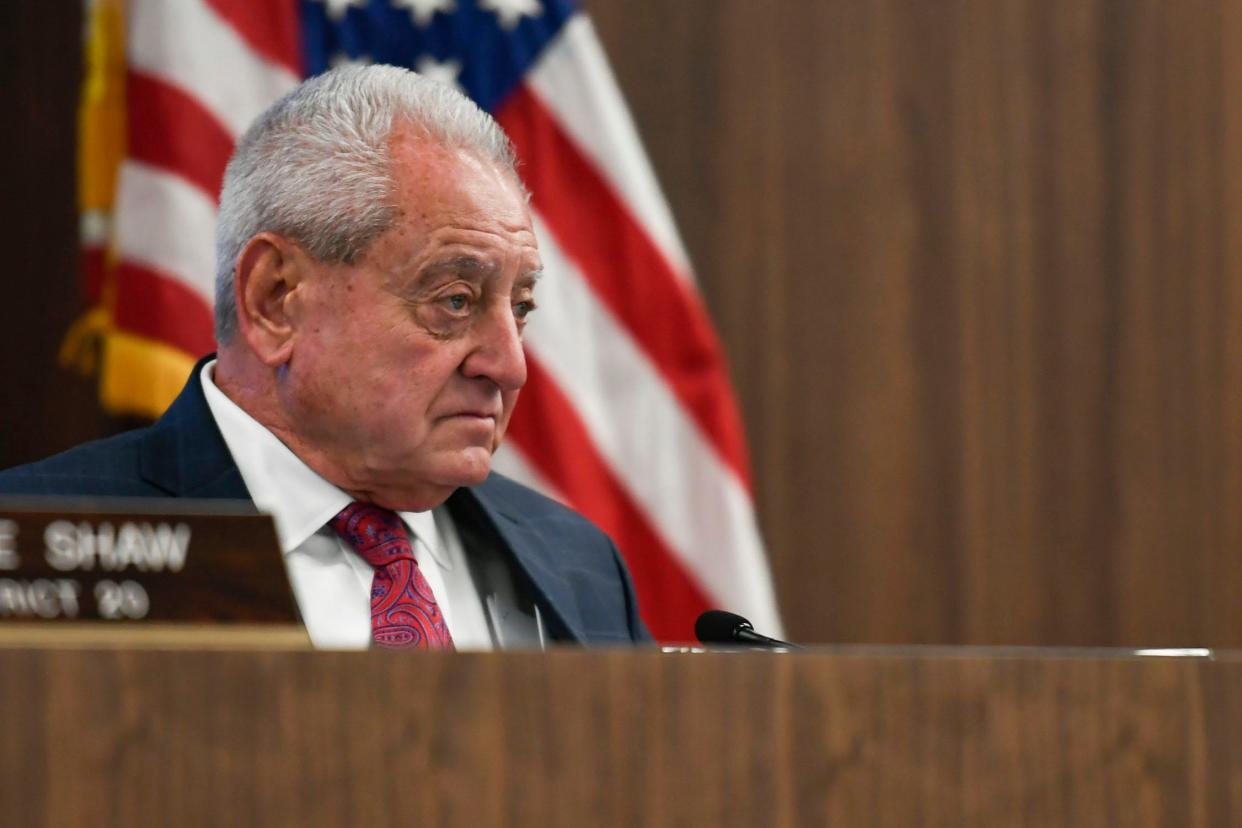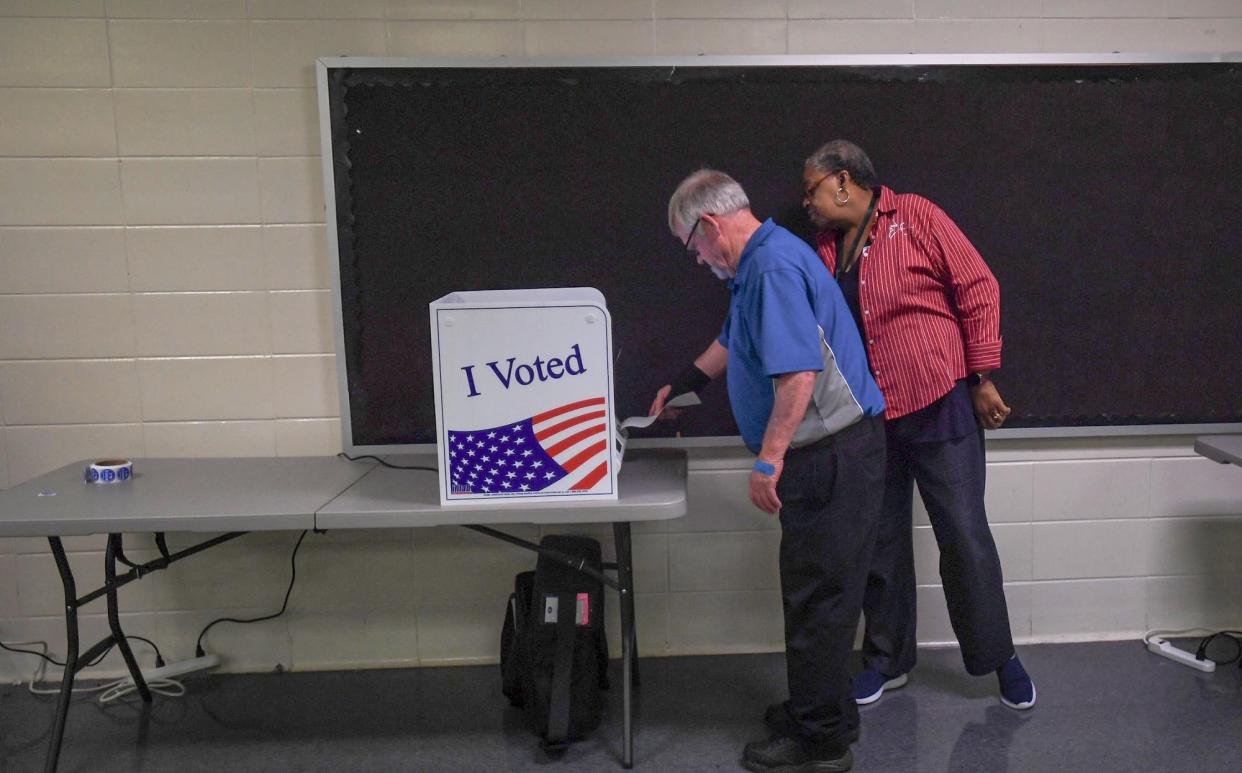Primary season isn't over yet: What to know about SC's runoff election
After the dust settled on South Carolina’s statewide primaries on June 11, three Greenville County Council incumbents were ousted and two others could face a similar fate in the upcoming primary runoff later this month.
Republicans Butch Kirven, Chris Harrison, and Mike Barnes lost primary races on Tuesday, which comes after a contentious year in 2023. All three voted for an increase that raised property taxes by $28 for every $100,000 in valuation. It was the county's first increase in 30 years.
Garey Collins, Curt McGahhey, and Kelly Long will replace the incumbents in January, as none have an opponent in the fall general election.
“Over the next 6 months I will continue to work hard for District 18 to finish out my 2nd term,” Barnes said in a statement posted to his campaign’s Facebook account. “The author of my story is writing a new chapter and I am excited to see where that leads.”

For some Republican and Democrat candidates, the primary campaign continues in a runoff set for June 25.
In District 20, Republicans Steve Shaw and Alex Reynolds will again compete. Shaw represents the lone candidate up for re-election who voted against the tax increase. Last December, he announced he would seek a seat in South Carolina's state Senate District 6 after Sen. Dwight Loftis said he would not run again. Shaw later decided against a run for the Senate and instead ran as an incumbent for his council seat.
Shaw led challengers Reynolds and Ken Matesevac, garnering 2,923 votes to Reynolds’ 2,400 and Matesevac’s 1,578, but did not earn the majority needed to secure the party’s nomination. In South Carolina, a candidate must earn 50% plus one to be deemed the winner.
In District 22, Republican Frank Farmer will face Jay Rogers in the run-off. District 22 represents the only open seat on the council. Councilmember Stan Tzouvelekas decided not to seek re-election and instead ran for South Carolina House of Representatives District 22. He lost to the longtime Greenville County Clerk of Court Paul Wickensimer in the primary.
More: Learn about the history of enslaved Black people and their freedom during Juneteenth events
Farmer received 3,070 votes to Rogers 1,758. Whoever clinches the nomination will face Democrat Karine Debaty in the general election.
In District 25, the lone Democrat up for re-election, Ennis Fant faces opposition from Derrick Quarles. Fant gained 974 votes to Quarles' 713.
Who else faces runoffs this month?
Runoffs also will be held for congressional and state offices.
In South Carolina’s 3rd congressional district, Trump-endorsed Mark Burns will face Sherri Biggs for the Republican nomination. With a crowded race of seven candidates, many expected a runoff between the leading candidates.
Other runoff elections include:
Republicans Jason Elliott and Ben Carper for state Senate District 6
Republicans Lee Bright and Roger Nutt for state Senate District 12
Republicans Blake Sanders and James Galyean for state House District 9
Republicans Chris Huff and Kerri Smith for state House District 28
Republicans Sarita Edgerton and JoAnne LaBounty for state House District 34
Danielle Vinson, a professor of politics and international affairs at Furman University, said runoffs often occur when multiple candidates are in a race or if an incumbent is not popular with constituents or has a vulnerability.

All the statehouse races headed to runoffs featured more than two candidates, making it more difficult for one candidate to garner the majority needed to be declared the winner.
Vinson said with just two weeks left before the runoff election, campaigns are often “frantic” as candidates attempt to convince voters who voted for them in the primary to return to the polls and do it once again.
“The other challenge is to try to get the people that didn’t vote for either of the candidates in the runoff to shift your way,” Vinson added. “Sometimes, that can be helped if you win endorsements from the people that are no longer in the race.”
On Thursday, Dan Nickles, the third candidate in the race for state Senate District 6 who did not gain enough votes to advance to the runoff, announced he was endorsing Elliott.
Vinson expects an even lower turnout for the runoffs than was for the primary.

In Greenville County, SC Votes reported a 15% turnout, Anderson County saw a 20% turnout, and Spartanburg County had the lowest turnout, at 12%, below the overall state turnout of 13%.
What to know about voting in the runoff election
Early voting for the runoff election will begin Wednesday, June 19, and continue through Friday, June 21.
Since the runoff is a continuation of the primary, if you voted in a party’s primary, you can only vote in the same party’s runoff. For those who did not vote in either primary, you can choose between either party’s runoff election.
To vote in South Carolina, you need to bring your photo identification to the polls, which could be your South Carolina driver's license or Department of Motor Vehicles identification card, a South Carolina voter registration card with photo, or a federal military ID or a U.S. passport.
Savannah Moss covers politics for the Greenville News. Reach her at smoss@gannett.com or follow her on X @Savmoss.
This article originally appeared on Greenville News: SC runoff elections in less than two weeks: What to know






